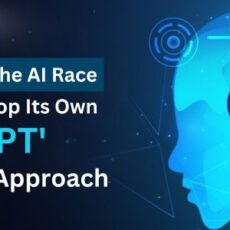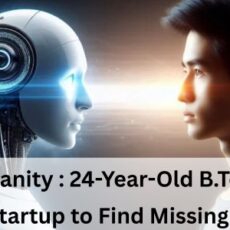Introduction
The rise of AI and automation has sparked global concerns and panic about job displacement, yet new research suggests these technologies may create more opportunities than they eliminate. This transformation extends beyond the technology sector, affecting manufacturing and healthcare industries.
Artificial intelligence (AI) is reshaping the global workforce. It promises new opportunities in software development, data analysis, and renewable energy engineering while accelerating the decline of traditional roles like data entry clerks and bank tellers. According to the World Economic Forum’s (WEF) Future of Jobs Report 2025, 86% of surveyed businesses expect AI and information-processing technologies to transform their operations significantly by 2030.
Digital access driving transformation

WEF reports that broadening digital access is emerging as the most transformative trend, with 60% of employers expecting it to reshape their business by 2030. This proves the adoption of new technologies across all regions and sectors.
“As we enter 2025, the landscape of work continues to evolve at a rapid pace. Transformational breakthroughs, particularly in Gen AI, are reshaping industries and tasks across all sectors,” said Saadia Zahidi, MD at the WEF
For instance, investment in Gen AI has increased eightfold since OpenAI released ChatGPT in November 2022. However, whilst the technology sector leads AI adoption, construction lags. According to the WEF, part of this lag is due to advanced and middle-income economies’ widespread use of Gen AI, as low-income economies show limited implementation. Yet, workplace studies indicate that technology enhances human skills, enabling less specialised employees to perform expert tasks in accounting, nursing, and teaching roles. GetMyIndia.com
How robotics is impacting global manufacturing
WEF says that robot installations concentrate in five countries: China, Japan, the US, the Republic of Korea, and Germany, accounting for 80% of global deployments. Global robot density now reaches 162 units per 10,000 employees, double what seven years ago.
However, regional variations in robotics impact reflect technological development disparities: over 60% of employers in the five leading countries anticipate transformation, compared to 39% in Sub-Saharan Africa and 44% in the Middle East and North Africa.
Highlighting the domineering issue of mass upskilling to keep up with AI’s evolution, Judith Wiese, Chief People and Sustainability Officer at Siemens AG, says in a LinkedIn post: “Imagine if a five-year degree were designed for today’s skills; by the time it is completed, two years’ worth of those skills would already be outdated.”
Key facts on how AI is impacting the global workforce
- 86% of employers expect AI and information processing technologies to transform their business by 2030
- 170 million new jobs to be created globally by 2030, while 92 million existing roles face displacement
- Investment in Gen AI has increased eightfold since ChatGPT’s launch
- 39% of existing skill sets will become outdated between 2025 and 2030
- 85% of employers plan to prioritise workforce upskilling
- 63% of employers identify skills gaps as the primary barrier to business transformation
- Global robot density now reaches 162 units per 10,000 employees, double what seven years ago.
Skills demands are evolving
The last decade has been marked by high levels of skills instability, driven by rapidly advancing technologies. Across sectors, the skills required to remain competitive have continued to evolve, shaping employers’ approaches to learning and development. In particular, employers are focusing on reskilling and upskilling. The WEF survey found that half of the employees completed training as part of long-term learning strategies, compared to 41% in 2023. This emphasis on continuous learning may have helped curb skills disruption; employers expect 39% of workers’ core skills to change by 2030, down from 44% in 2023. While high levels of instability remain, these figures suggest employers are training their workforces in line with skills demands.
Future growth areas emerging
The technology roles show the fastest growth, including positions for big data specialists, fintech engineers and AI specialists, whereas green transition roles such as autonomous vehicle specialists and renewable energy engineers feature among expanding positions.
However, demographic shifts continue to shape labour markets, with aging populations in high-income economies increasing healthcare demand while expanding working-age populations in lower-income economies fuel education sector growth.
Conclusion
By 2030, AI is expected to reshape 86% of businesses, driving unprecedented levels of innovation, efficiency, and growth. Automation of repetitive tasks will streamline operations, reducing costs and increasing productivity. AI-powered analytics will enable companies to make data-driven decisions faster, while personalized experiences will enhance customer satisfaction. Industries like healthcare, finance, and retail are already seeing AI’s impact through advancements in predictive analytics, robotics, and natural language processing. However, the shift will require businesses to adapt, invest in employee reskilling, and address ethical concerns surrounding AI use. The companies that successfully integrate AI will be better positioned to compete in an increasingly digital world, fostering both transformation and new opportunities. By embracing AI, businesses can navigate the challenges ahead and unlock the full potential of this revolutionary technology.
GMICapitals.com RaysVeda.com GetMyStartup.com LawCanal.com ABHAYRAY.COM ZinCob.com




